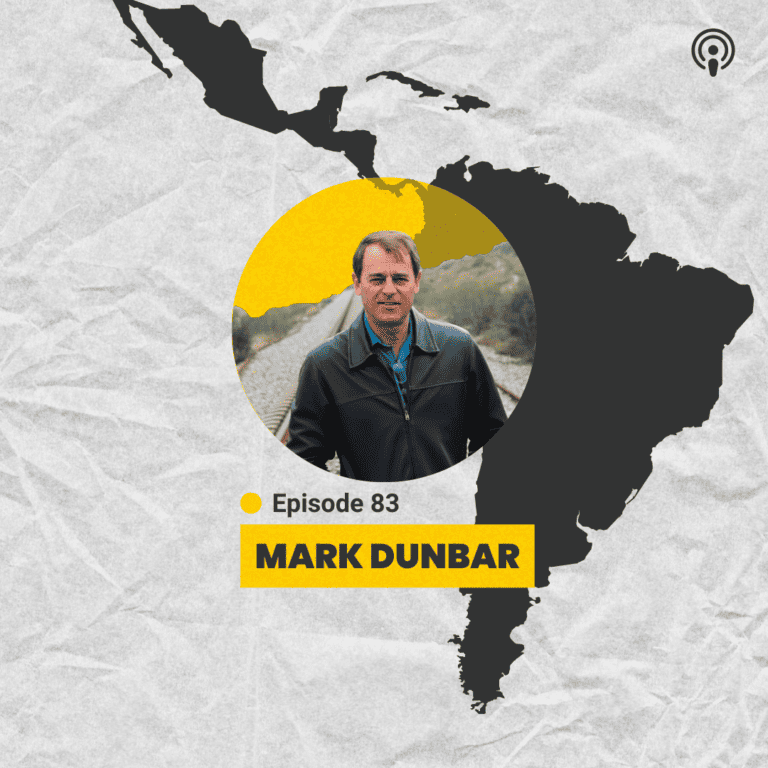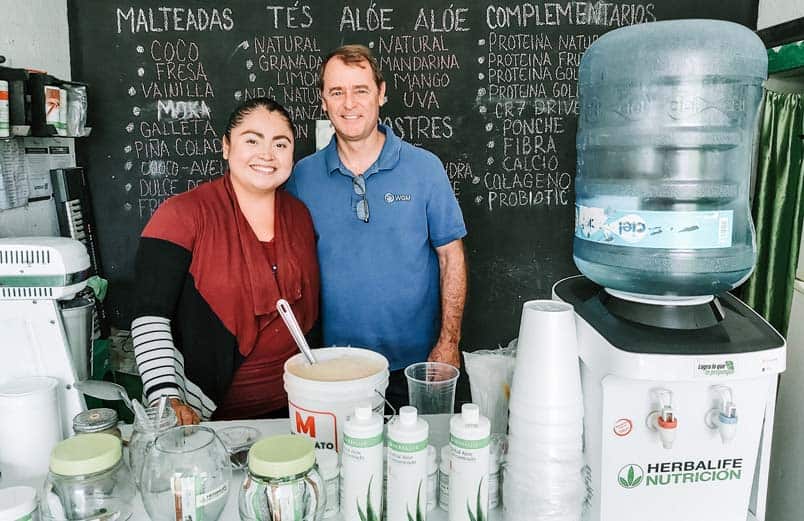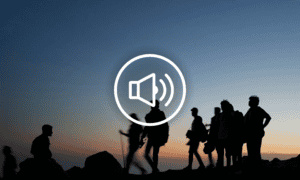At a Glance
What’s the difference between Churchianity and Christianity? What do we miss out on if we as believers focus on growing the Church and forget about the Kingdom? Why do many Christians around the world have a difficult time finding practical applications for their life, work, and relationships in the Bible? Today we are joined by a lifelong missionary, Mark Dunbar, who grew up in Honduras as an MK (missionary kid) and now works with World Gospel Mission throughout Latin America. Listen to his story as he personally and vocationally wrestled with these vital worldview questions that all believers need to ask.
What You'll Hear
- Introduction (1:24)
- Mark’s story (4:11)
- Mark’s definition of success in missions when he was younger (15:30)
- The importance of applying the cultural commission (35:03)
- Latin America is going through a dramatic change right now (40:07).
- The problem with the poverty mindset and victimhood (52:56)
- Conclusion (1:00:58)
Dr. Brian Fikkert is a Professor of Economics and Community Development and the Founder and President of the Chalmers Center for Economic Development at Covenant College. He is coauthor of the best-selling book When Helping Hurts: How to Alleviate Poverty Without Hurting the Poor…and Yourself as well as Helping Without Hurting in Short-Term Missions, Helping Without Hurting in Church Benevolence, and From Dependence to Dignity: How to Alleviate Poverty Through Church-Centered Microfinance. Dr. Fikkert earned a Ph.D. in economics from Yale University, specializing in international economics and economic development. He is the author of numerous articles in both academic and popular journals. Prior to coming to Covenant College, he was a professor at the University of Maryland—College Park and a research fellow at the Center for Institutional Reform and the Informal Sector.
Using the link above, you can read the transcript, listen along, and adjust the speed of the podcast while you listen.
"I equated the church with Kingdom. And now I see how limited my whole vision was."
Mark Dunbar (18:11)

Quotes
- 18:11 “In a sense, it’s more of a ‘churchianity’ instead of a Christianity. It’s very church-oriented instead of Kingdom-oriented. And for me, I equated the church with Kingdom. And now I see how limited my whole vision was.” Mark
- 22:19 ”Romans 12:1 is followed by Romans 12:2. Romans 12:1 talks about the need for our consecration. And that’s our reasonable form of worship. But then, as followed by that we must have our whole way of thinking transformed as well. And that’s where I saw that I had fallen short, I was concentrating mostly just on the first part.” Mark
- 27:43 “What is it about the Rio Grande, that north of it, you see, flourishing, and south of it, you see poverty, and that that was one of those subconscious ideas or questions in my mind as to why. And it all comes down to the way of thinking and the way of living.” Mark
- 30:48 “One of those huge ideas that changed me was the idea, or the truth of the cultural mandate. I had grown up a Christian in a missionary family in the church, and I had never even heard of that concept. I mean, I’d read Genesis 1:26-28, many times, but it never really clicked that that was what gave purpose to work. It gave purpose to life, that it gave purpose to the creation around us and to the abilities God gave us.” Mark
- 36:16 “All these things that we use today — is because we have been able to take what God has made and He has given us incredible abilities to take something and to make something all the more useful to everyone. And that’s part of culture–that’s part of who we are.” “That’s how God created us. That’s our first job description in some ways, right?” Scott “Yeah. And it’s to bring glory to Him.” Mark
- 41:57 “Her [Ena Richards, leader of Work4ALiving] story is that she and her husband wanted to help the unemployed. So they went to a very poor part of, I believe, is Port Elizabeth, South Africa, and did all the traditional things. That’s where you teach people’s specific skills, and you find them a job so that they can use those skills in the job. You teach someone how to start a business, you give them the seed money, everything to get started. And then everything should work, right. Well, they went back several months later and saw that everything was back to how it had been before, but it was even worse. And that’s when they realized that the problem goes much deeper than a lack of opportunity, a lack of skills, a lack of resource or lack of cash. It goes to an underlying mindset that breeds poverty.
And so they now — I’m going to say we because we’re part of it, developed a three-week program to offer to the unemployed. The unemployed will pay a small fee to take this three-week course. We teach them how to write out their resume, how to do the interview, then on the third day, they are challenged to start a small business. And the way that is done — this is fascinating. They divide the class into groups of like five people each, they give a little bit of seed money or loan to that group, like 20 bucks or less. And they have to multiply that in the three-week course, or they don’t pass the course. And so if they do not show a profit, then they don’t pass. And that is huge, because they have been told their entire lives, that they cannot do it, that they are unable to do it that they’re worthless, etc. And when they in a three week time, they usually double or triple the initial cash capital. Then something starts to click.” Mark Dunbar
- 51:06 “How would it be if every church was known as the center of wisdom for life skills? I believe that’s the role that God wanted the church to have from the beginning. Included in that, obviously, is spiritual wisdom.” Mark
- 53:25 “It’s that poverty mindset. It’s that same fatalism that we have seen so prevalent in Africa. We’ve seen it here in the US in the last several years, where everyone wants to be claimed as a victim. And the problem with being a victim is that you never take responsibility for yourself. And you will find no solution until that perceived oppressor does something. So in a sense you’re giving your future away to someone else. Because you see yourself as a victim.” Mark
- 54:30 “Victimhood is a really destructive mindset, and there can be truth to it too. I mean, we live in a fallen world where there are systems of oppression that we all struggle with, but this idea that you’re completely powerless in the face of those [who are to blame] is I think this unbiblical idea that creeps in.” Scott
What is it about the Rio Grande, that north of it you see flourishing, and south of it you see poverty? This was an ongoing subconscious question in my mind. And it all comes down to the way of thinking and the way of living.
Mark Dunbar Tweet
Go Deeper

Mark Dunbar grew up in Honduras as a missionary kid and received the Gospel at a young age. He studied accounting in college and became a CPA in Oregon. In 1986, he and his wife joined World Gospel Mission and served at the headquarters briefly before being assigned to serve in various capacities in Honduras for more than 20 years.
While serving, Mark was struck by the desperation he saw because of poverty and longed to do something about it. More recently, Mark and his wife were transferred to Mexico, which allowed him the chance to attend a conference with Disciple Nations Alliance. This helped expand his understanding of the Gospel and its impact. Mark began reading DNA’s books and teaching it in local churches.
Soon after, he became part of a Latin America team from his organization that was focused on bringing DNA content to all of Latin America. Since training with DNA’s alliance member, Ena Richards with Work4ALiving, Mark has enjoyed teaching the content online in more than 13 countries. This program now has a growing number of teachers.
A WIRED4Business class is currently being taught in prison cells to gang members in Central America, to youth in Paraguay, and farmers in Bolivia.
The WIRED4Business class is a global business bootcamp that teaches you to start and grow a business. Topics covered in this course include, but are not limited to: sales, starting your business, product development, costing and record-keeping, stock control, market analysis, growing your business, break-even point, marketing, merchandising, customer service, wealth planning and more. The desired end result is a new entrepreneur who is excellent in production, sales, service, and administration. Read this testimony.
The Monday Church Course
The Church is not a building or a Sunday-morning activity; it is the Body of Christ on mission in every sphere of society, every day of the week.
The Monday Church course explores the greatest tool God has given you to impact the world: your work. God intends for your daily work to be for the service of man, the blessing of the nations, and the glory of God.
Monday Church provides a biblical framework for each of us to establish a meaningful, integrated understanding of our life and work. Whatever your work or vocation, God calls you to a new way of living – fully in His presence and for His glory. Also available in Spanish and Arabic!
Get started now with our completely free Monday Church course!
This Book Changed Everything: the Bible’s Amazing Impact on Our World
By Vishal Mangalwadi
When George Washington had successfully led the American Revolution, he declined to become King George I of the USA. He chose to become the president, the first among equals. Biblically inspired political, social and economic vision radically changed the course of our history, our institutions and our ideals, besides, of course, bringing deep changes in our individual selves. This Book Changed Everything, the latest book by a foremost Christian thinker of our age, Vishal Mangalwadi, is a tour de force that will redefine the way we look at the Bible’s transforming influence on everything that our modern world cherishes.
The Bible, Mangalwadi argues, empowered little people who challenged the might of great empires and turned tiny nations into economic superpowers. It delivered humankind from superstition and gave them the courage and confidence to reshape the world. At the root of this revolution was the acknowledgment of God’s Revelation as the only reliable guide to build our lives as well as our nations on. In 15 well-argued chapters, Mangalwadi demonstrates the role of Revelation on areas as diverse as epistemology, language, law, economics, political offices, nations and communities, church and tolerance. Chapters on journalism and literature by Jenny Taylor and Ashish Alexander respectively contribute significantly to this volume’s argument—that This Book, indeed, Changed Everything!







Very well done. Thank you, Mark